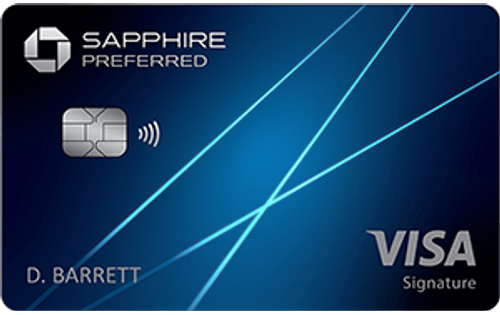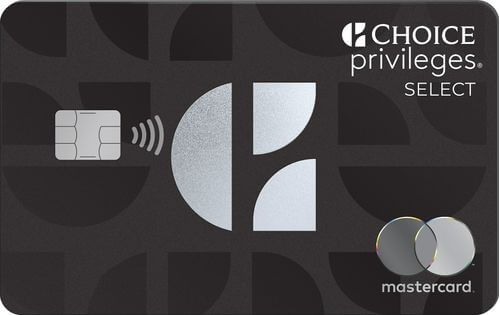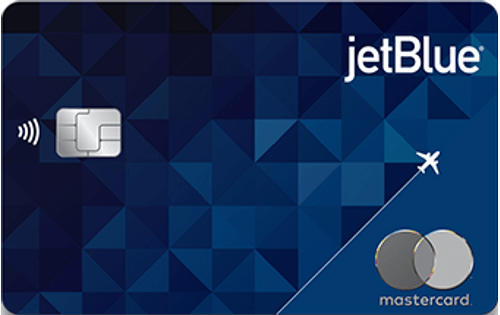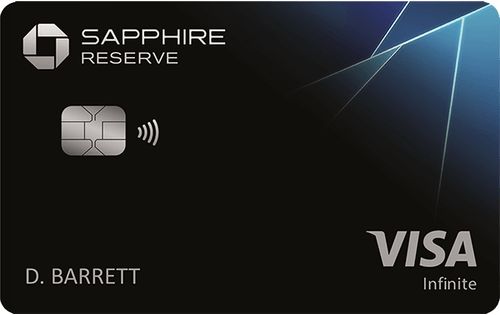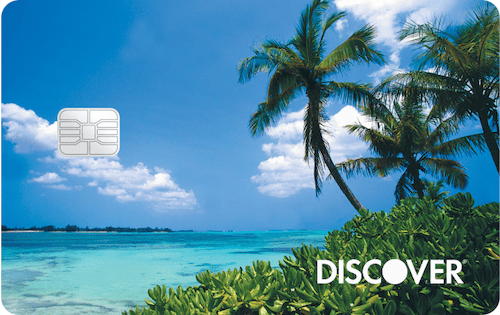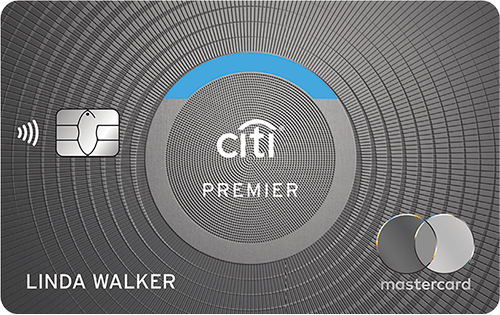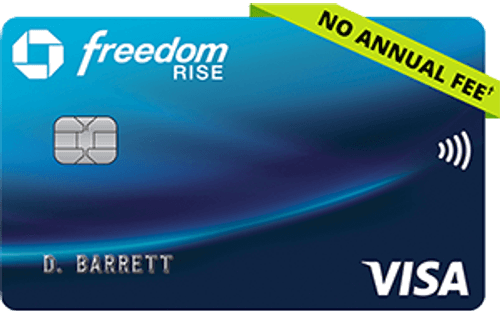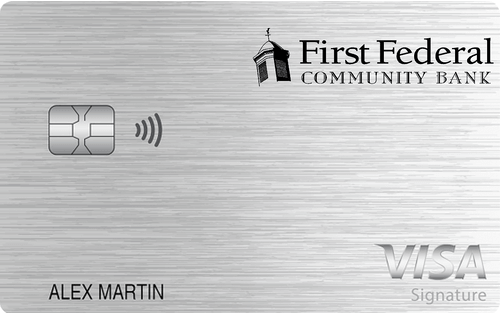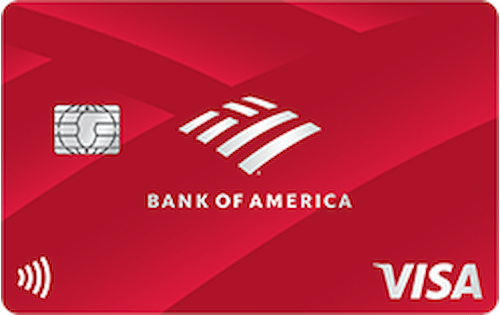- Best travel credit cards compared
- Methodology
- Sources
- Beginner’s guide to travel credit cards
- About the author
- User questions & answers
- Expert opinions
Best Travel Credit Cards Compared
| Credit Card | Category | Annual Fee |
| Chase Sapphire Preferred® Card | Overall | $95 |
| Discover it® Miles | No Annual Fee | $0 |
| U.S. Bank Altitude® Connect Visa Signature® Card | Road-Trip Rewards | $0 intro 1st yr, $95 after |
| Choice Privileges® Select Mastercard® | Hotel Rewards | $95 |
| Capital One Venture Rewards Credit Card (see Rates & Fees) | Sign-Up Bonus | $95 |
| Citi Premier® Card | Travel & Dining | $95 |
| JetBlue Plus Card | Airline Rewards | $99 |
| Chase Sapphire Reserve® | Excellent Credit | $550 |
The right travel rewards card is a very powerful tool capable of saving you a lot of money. You just have to find the right card for your needs.
Methodology for Selecting the Best Travel Credit Cards
To identify the best travel credit card offers, WalletHub’s editors regularly compare more than 1,500 credit cards based on their miles, points or cash back earning rates as well as their annual fees, foreign transaction fees, approval requirements and, to a lesser extent, their APRs. We calculate how much different types of travelers would earn over either one year or two years of use, depending on the type of travel rewards card and the manner in which it is likely to be used.
More specifically, we calculate net rewards to estimate earnings after annual fees, and we use consumer spending data from the Bureau of Labor Statistics to construct our user profiles. These calculations, combined with analysis of the types of travel rewards cards people search for most often, lead us to the best travel credit cards in the most popular usage categories.
For cards that offer initial rewards bonuses, we include the bonus if a cardholder would earn it by spending an average of $700 per month for up to four months. And for our heavy-spender category, we double the expected spending. Any other bonuses past the four-month mark that require spending to earn are included in calculations if the spending requirement can be met based on the standard spending assumptions we used. We do not consider bonus rewards rates or redemption bonuses that require the cardholder to use the credit card issuer’s travel booking portal. These portals often have relatively high prices and limit customers’ options.
Finally, we repeat this exercise on a regular basis, updating our picks whenever offers change enough to warrant it.
Sources
WalletHub actively maintains a database of 1,500+ credit card offers, from which we select the best travel credit cards for different applicants as well as derive market-wide takeaways and trends. The underlying data is compiled from credit card company websites or provided directly by the credit card issuers. We also leverage data from the Bureau of Labor Statistics to develop cardholder profiles, used to estimate cards’ potential savings.
Beginner’s Guide to Travel Credit Cards
What Is a Travel Credit Card?
A travel credit card is a card that offers bonus rewards for travel-related expenses and allows you to redeem for things like free flights or hotel stays. Some elite travel cards also provide perks such as airport lounge access, travel insurance, and hundreds of dollars in travel credits.
Key Things to Know About Travel Credit Cards
- Travel credit cards can be co-branded with a particular airline or hotel chain, or they can be general travel credit cards that don’t limit your rewards to a specific company.
- You’ll typically earn more rewards with travel-related purchases compared to other purchases.
- The rewards you earn are usually worth the most when redeemed for travel.
- Travel credit cards normally offer rewards in points or miles.
- Many travel cards save you money abroad by not charging foreign transaction fees.
Learn more about travel credit cards.
How Travel Rewards Credit Cards Work
Travel credit cards work just like any other rewards credit card, though they tend to reward cardholders more for making travel-related purchases than anything else. Plus, the points or miles that travel credit cards provide are usually worth more when redeemed for travel, compared to other redemption methods.
It is also worth noting that travel credit cards commonly offer features such as travel insurance, no foreign transaction fee, airport lounge access, and reimbursement for TSA PreCheck/Global Entry application fees.
Learn more about how travel credit cards work.
Types of Travel Credit Cards
-
Airline Credit Cards
Credit cards affiliated with airlines help frequent flyers earn free flights and enjoy seat upgrades, priority boarding, free checked bags, in-flight savings and other perks. Most major airlines have affiliated credit cards, and most airline credit cards require good credit or better for approval. -
Hotel Credit Cards
Hotel credit cards have rewards tailored to specific hotel chains, which help frequent guests earn free nights and provide perks such as elite status, early check-in and late check-out. Major hotel chains from Hilton and Marriott to IHG and Hyatt have their own credit cards, and most require good credit or better for approval. -
General Travel Rewards Cards
General-purpose travel rewards cards aren’t affiliated with a particular travel provider, and they allow you to earn rewards points or miles at a competitive rate on all travel purchases and then redeem them to pay for any flight, hotel reservation or other travel expense you want. The best travel rewards cards require good-to-excellent credit, but you can often find good offers for people with lower scores, too. -
International Credit Cards
International credit cards have no foreign transaction fee, tend to be on the Visa or Mastercard network, and may have chip-and-PIN functionality. International credit cards usually have good travel rewards, too. -
Other Credit Cards with Rewards
Any credit card with rewards can help you save on travel. For example, a cash back credit card still rewards you for travel purchases, and you can redeem what you earn for a statement credit to help offset the cost of travel accommodations. -
Other Credit Cards
Any major credit card can be a travel asset, even if it doesn’t offer rewards. Credit cards provide great currency conversion rates, for example, and often have perks such as travel insurance. Besides, simply having a credit card for emergencies can come in handy.
Co-Branded Travel Cards vs. General Travel Cards
Co-branded travel credit cards are affiliated with a specific travel company, such as an airline, a hotel chain, a cruise line, or even a travel-booking website. This type of travel card typically provides rewards that will only return maximum value when redeemed for goods or services from the affiliated travel company. As a result, you’ll need to be a regular customer of the affiliated company in order to get your money’s worth in most cases. To make up for the lack of redemption flexibility, co-branded travel rewards credit cards often have higher rewards rates than general-purpose travel cards.
General travel rewards credit cards, on the other hand, allow you to earn and redeem rewards at the same rate regardless of which specific travel providers you use. You might be able to pay for travel with rewards through the card issuer’s booking portal, or redeem for a statement credit to cover the cost of a travel-related purchase when it appears on your bill.
Below, you can see how popular co-branded and general-purpose travel cards compare.
| Card Name | Delta SkyMiles® Gold American Express Card | Capital One Venture Rewards Credit Card (see Rates & Fees) | Hilton Honors American Express Card |
| Co-Branded or General? | Co-Branded | General | Co-Branded |
| Initial Bonus | 40,000 miles after spending $2,000 in the first 6 months | 75,000 miles for spending $4,000 in the first 3 months | 100,000 Hilton Honors points after you spend $2,000 in the first 6 months |
|
Ongoing Rewards |
1 - 2 miles per $1 | 2 - 5 miles per $1 | 3 - 7 points per $1 |
|
Annual Fee |
$0 intro 1st yr, $150 after | $95 | $0 |
|
Min. Credit Required |
good | good | good |
Travel Credit Cards vs. Cash Back Credit Cards
Travel rewards credit cards tend to provide higher earning rates than cash back credit cards and the potential for greater savings overall. Travel rewards cards are also more restrictive than cash back cards, requiring you to redeem for eligible travel expenses in order to get the best value for your rewards. Some travel cards give you half as much for your points or miles if you redeem for cash back instead.
Travel rewards are also more susceptible to devaluation than cash back. If the credit card company increases the number of points or miles needed for a free flight or hotel night, for example, the points you’ve already earned go down in value.
A lot ultimately depends on the details of the individual offers you’re considering. However, you can still get a good sense of how cash back and travel rewards cards compare by looking at averages, like those you’ll find in the table below.
| Category | Cash Back Credit Cards | Travel Credit Cards |
| Average Initial Bonus | $242 | 30,381 points/miles |
| Average Rewards Rate | 1.17% cash back | 1.25 points/miles per $1 spent |
| Annual Fee Range | $0 - $250 | $0 - $995 |
| Min. Credit Needed | None | Good credit or better* |
* People with bad, limited or fair credit can get a cash back card that gives bonus rewards on travel, but you need good credit or better to get a true travel rewards credit card that offers points or miles and provides extra value on travel purchases and/or redemption, along with travel-oriented perks.
For more information, check out our in-depth comparison of cash back vs. travel rewards, along with our editors’ latest picks for the best travel cards and the best cash back cards.
Pros & Cons of Travel Credit Cards
| Pros | Cons |
| Big initial bonuses | Limited redemption options or lower value for cash back |
| High ongoing rewards rates | Points and miles can expire or lose value over time |
| $0 foreign transaction fees | High interest rates |
| Benefits such as travel insurance and airport lounge access | Higher annual fees |
The biggest advantage of travel credit cards is the potential to save more money overall than you might be able to with a cash back credit card. Travel rewards cards tend to offer more valuable initial bonuses and higher ongoing rewards rates, but you have to redeem your rewards for travel to maximize your savings. Redemption restrictions are the biggest disadvantage of travel cards. Cash back rewards are much more flexible.
Learn more about why it’s good to get a travel credit card and what travel-card disadvantages to watch out for.
Should You Get a Travel Credit Card?
You should get a travel credit card if it will save you more money than cash back credit cards, cards with general-purpose rewards points, and cards that bring other features such as 0% introductory APRs to the table. That is most likely to be the case if you:
- Travel out of town multiple times per year
- Have a good or excellent credit score of 700+
- Plan to pay your new card’s bill in full monthly
As with any rewards card, you’ll also need to spend enough for the rewards and supplemental benefits to outweigh any annual fees. If that’s unlikely to be the case, you may want to consider a travel credit card with no annual fee instead.
It’s also important to point out that a travel rewards credit card could end up being just one of several credit cards in your wallet. The choice you’re making between travel rewards and cash back now doesn’t have to be one that you stick with forever. You could always apply for another card in six months to a year.
Learn more about when getting a travel credit card is worthwhile.
How to Choose a Travel Credit Card
- Narrow down the options to cards you can qualify for, based on your credit score.
- Compare the expected net value (rewards minus fees) of your remaining choices.
- Consider extra benefits.
- Decide how long you want to use the card, and where you want to use it.
Picking the best travel credit card may seem difficult at first, but once you know what to look for, it gets a lot easier.
Learn more about how to choose a travel credit card.
Best Hotel Rewards Programs of 2024
Wyndham Rewards is the best hotel loyalty program overall, earning an average WalletHub Rating of 68 out of 100. WalletHub compared the 10 most popular hotel rewards programs using 21 key metrics, ranging from point values to blackout dates for booking free nights. If you regularly stay with one of the hotel chains listed below, getting an affiliated credit card could save you a lot of money. You can get a personalized recommendation for the best hotel loyalty program for your needs using our hotel rewards calculator. Simply input your annual hotel budget, and we’ll apply the methodology and data used for WalletHub’s hotel program report to your individual situation.
Best Frequent Flyer Programs of 2024
Joining one of the best frequent flyer programs and using a co-branded airline credit card can help you quickly rack up free flights. Below, you can see which programs ranked highest in WalletHub’s annual study.
- United Airlines – MileagePlus
- Alaska Airlines - Mileage Plan
- Delta Air Lines - SkyMiles
- Hawaiian Airlines - HawaiianMiles
- American Airlines - AAdvantage
12 Best Travel Credit Card Tips
1. Check Your Credit Score Before You Apply
The best travel credit cards overall require good or excellent credit for approval, which means you generally need a 700+ credit score for good approval odds. You can check your latest credit score for free on WalletHub.
If you have less-than-good credit, you’ll still be able to find a good card. You’ll just need to consider offers with lower credit score requirements. .
2. Choose Your Credit Card(s) Wisely
If you’re interested in a new credit card mainly for a quick rewards score, focus on the best initial bonuses. If you’d prefer to keep the same card for a long time, place more emphasis on ongoing rewards and fees. If you’re worried about finance charges, a 0% offer has the potential to save you more than even the best travel rewards card.
The bottom line is that you need a plan for how you’ll use any card you apply for. That way, you can focus on comparing the card terms that will affect you the most, making it easy to pinpoint the best card for your particular needs.
For a personalized credit card recommendation based on your latest credit score and spending/payment habits, sign up for a free WalletHub account.
3. Don’t Rule Out Cards With Annual Fees
Finding the best travel rewards credit card for your needs is all about figuring out how much you stand to save once annual fees are taken into account. Many of the best cards have fees because their rewards are more than worth the cost.
4. Pick the Most Valuable Redemption Method
A credit card offer with eye-catching travel rewards might not be all that useful if it includes points or miles that either aren’t worth very much or are very difficult to redeem. Credit card companies often make it clear how much their rewards are worth with common redemption methods, but you may have to dive into the card’s rewards program terms and conditions. Reading reviews can also help enlighten you to common cardholder issues.
If you won’t easily be able to redeem for a card’s most valuable option on a regular basis, the card probably isn’t for you. You don’t want to let a bunch of points or miles expire just because you were overly optimistic about how much you’d travel in the future.
5. Pay with Your Credit Card Whenever Possible
The best credit cards for travel provide a lot of value through initial rewards bonuses and points or miles for every dollar you spend. They also give you a $0 liability guarantee for fraud and often provide benefits such as complimentary rental car insurance coverage. So it’s a good idea to use one for the majority of your travel expenses.
6. Pay the Bill in Full Monthly
The best travel rewards credit cards typically have high interest rates, so carrying a balance from month to month will quickly erase what you earn in rewards. Fortunately, you can avoid interest charges by paying the full balance listed on your statement by the due date each month.
If your credit card has both travel rewards and a 0% APR, you only need to pay the minimum amount due each month while the 0% rate is in effect. Just remember that the 0% rate doesn’t last forever. A high regular APR will apply to any balance remaining when the 0% promotion ends.
7. Take Advantage of Uniquely Valuable Initial Bonus Offers
You don’t want to go overboard and apply for a bunch of cards at once or accumulate more cards than you can comfortably handle, but you should keep your eyes out for uniquely valuable bonus offers and apply when you find a great deal. For example, you could save hundreds of dollars more per year by earning an initial bonus every 12 months.
8. Be Realistic When Considering Co-branded Cards
If you can’t commit to flying exclusively with one airline or always staying at the same chain of hotels, a co-branded credit card might not be for you. You need to regularly make purchases with the hotel or airline in question for a co-branded card to make sense.
9. Tell Card Issuers You’re Leaving
Credit and debit card companies may suspend your account if a bunch of transactions suddenly pop up from outside your normal spending area. You can avoid the hassle by simply telling your issuer where and when you’ll be traveling. This is especially important if you’re headed out of the country, but it could come into play for long domestic trips as well.
10. Don’t Pay Foreign Fees
Nearly 90% of credit cards charge a premium to process transactions outside of the United States. It’s called a foreign-transaction fee, and it ’s usually equal to 3% of any international purchase.
You don’t actually have to be abroad to incur such a surcharge, either. Foreign fees apply whenever you make a purchase through an internationally based merchant. But as long as you have a credit card with no foreign transaction fee, which describes most of the best credit cards for travel, you won’t have to worry.
11. Use Credit for Currency Conversion
Visa and Mastercard offer exchange rates that are roughly 7% lower than what banks and credit unions charge to convert hard currency, according to WalletHub’s Currency Exchange Study. Simply using your card for international spending will also save you about 9% compared to converting money at Travelex.
12. Pay in the Local Currency
Foreign merchants sometimes offer to convert prices into U.S. dollars in order to charge a high conversion rate and line their pockets. You can avoid this by making sure your transaction is expressed in the local currency.
All in all, the best travel rewards credit cards can save you a boatload on everything from cruises to airfare to taxi rides. The trick is to find the right card for your particular needs. For your convenience, we’ll recap our editors’ picks for the best travel credit cards by category below.
